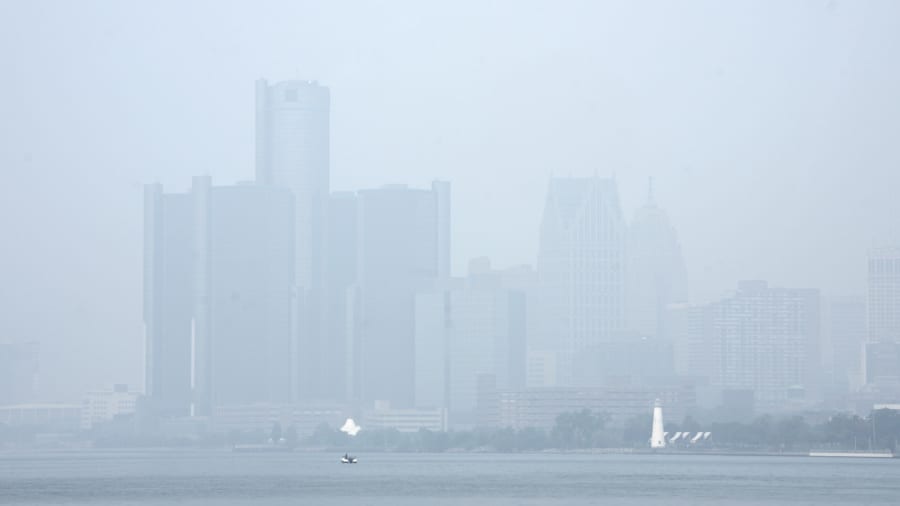As Southeast Michigan endures cold temperatures, this is a great time to discuss the warming planet.
Detroit had the snowiest Halloween on record with 0.2 inches measured at Detroit Metro Airport last fall. Prior to that early bout with wintry weather, the metro area had a slightly cooler than normal summer and the 10th wettest on record in 2023. After a snowless Christmas with a high of 54 degrees at the airport, January 2024 is reminding us that it is winter in Michigan.
Record warmth
Despite Detroit’s roller coaster weather, 2023 was Earth’s warmest year in 174 years of observational recordkeeping, according to the National Oceanic and Atmospheric Administration (NOAA). Scientists also said the melting of sea ice led to record low ice coverage in the Antarctic.
The global mean temperature rose to about 1.45 degrees Celsius above the 1850-1900 period, stated the United Nation’s World Meteorological Organization (WMO).
The UN calls climate change “the single biggest health threat facing humanity,” and the heat is just the tip of the iceberg.
Droughts are expanding in some regions, while floods are increasing in other places. Wildfire smoke is becoming an increasing concern farther from its source. Hurricanes are intensifying faster and the seas are warming and rising. Data from NOAA and NASA reveal that 90 percent of the planet’s warming is occurring in the oceans, which influence weather patterns and climates.

The climate has changed a lot over the past 4.5 billion years of Earth’s existence. It has been a lot colder and hotter globally. In fact, 55 million years ago, it was too warm for ice caps. There is even evidence that palm trees grew in the Arctic.
The climate is changing and many people accept this reality. The debates often ensue when asked: “Are humans at fault or worsening it?” Where do you stand on the debate?
The Industrial Revolution—which is often cited for expanding wealth, steering settlement, and leading to many modern-day conveniences—may have come with a significant environmental cost. Research shows that the climate is changing at a much faster pace since the Industrial Revolution. Apart from the natural changes, the warming has been linked to the emissions of greenhouse gasses.
Acceleration of warming planet
NASA explained that the current warming is happening “10 times faster than the average rate of warming after an ice age,” based on data published by the Intergovernmental Panel on Climate Change.
In December, scientists and representatives of governments attended the 28th Conference of the Parties (COP) in Dubai. They discussed action plans and progress toward addressing emissions, alternative energy, and ways to protect life and property amid rapidly changing climates. Emerging from the conference is the pledge of dozens of oil production companies to reduce methane emissions to net zero by 2030, or a balance between the greenhouse gasses produced by human activity and what is removed from the atmosphere.
Due to the acceleration of climate change, the UN Environment Programme said “unprecedented action is now needed by all countries.” Although parties made pledges at COP28, the UN Climate Change Executive Secretary Simon Stiell acknowledged during his closing speech that “all governments and businesses need to turn these pledges into real-economy outcomes, without delay.”
Climate anxiety
The changing climate can affect people in all aspects of life, including undermining one’s sense of security and leaving people distressed and unsure what to do.
It’s called climate anxiety. It is sometimes referred to as “eco-anxiety.”
Climate anxiety involves worrying about the future of our planet due to climate change. We would like your help to research the mental strain of climate change and find possible solutions to this collective concern. Experts suggest that taking action, even if seemingly small, is one way to ease the worry.
Survey
Do you find climate change to be a concerning issue? Have you experienced anxiety thinking about the future of our planet? How do you handle information about climate change?
Do you have strong opinions on these issues? Indifferent? CLICK HERE to take a survey.




